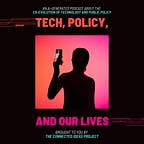The Ancient Roots of Agricultural Innovation
Agriculture is undergoing a revolution, one shaped by the transformative power of biotechnology. This field, at the intersection of science, policy, and industry, promises to address some of the most pressing challenges of our time. From food security to environmental sustainability, biotechnology offers a vision of the future where innovation aligns with necessity, creating resilient systems that can adapt to a rapidly changing world. The National Security Commission on Emerging Biotechnology has a great white paper on the topic of exploring various ways biotech affects our agriculture and national security.
Humanity has been modifying plants and animals for thousands of years, whether through selective breeding or using microorganisms for fermentation. These early innovations laid the groundwork for agricultural biotechnology, producing staples like bread, beer, and yogurt that remain cornerstones of our diets. But today, we stand on the brink of a new era. With tools like gene editing, scientists can make precise changes to DNA, accelerating the development of crops, animals, and microbes that not only meet modern demands but also anticipate future challenges.
Innovation in Action: Three Game-Changing Breakthroughs
The Cover Crop Revolution: Turning Weeds into Wealth
Take cover crops, for example. Traditionally, these plants are grown between crop cycles to prevent erosion and improve soil health. They’ve always been valued for their ecological benefits but offered little economic incentive to farmers. Pennycress, a weedy plant, is now being transformed through genetic editing into something much more—an oil-rich, protein-producing powerhouse. This modified crop could not only bolster soil health but also provide renewable fuel and animal feed, offering farmers a direct financial benefit while enhancing environmental resilience.
Heat-Resistant Cattle: Engineering Climate Resilience
Another area where biotechnology is making waves is livestock. As global temperatures rise, heat stress is becoming a major issue for cattle, impacting the production of both meat and milk. Scientists have turned to gene editing to address this challenge, developing cattle with shorter hair and enhanced metabolic traits to better regulate body temperature. These animals maintain high productivity even in extreme heat, ensuring a steady food supply and reducing the strain on farmers coping with unpredictable climate conditions.
The Nitrogen Revolution: Microbes as Nature's Fertilizers
And then there’s the issue of nitrogen fertilizers, a cornerstone of modern agriculture but also a source of significant environmental harm. These fertilizers boost yields but are expensive, subject to supply chain disruptions, and contribute to nutrient runoff that damages ecosystems. In response, researchers are engineering soil microbes capable of fixing nitrogen directly from the air, effectively bypassing the need for synthetic fertilizers. These microbes not only reduce costs for farmers but also lower agriculture’s ecological footprint, paving the way for more sustainable farming practices.
Beyond the Field: Stakeholder Perspectives
For Scientists: A New Frontier
The implications of these innovations stretch far beyond the fields where they’re applied. For scientists, agriculture is becoming an increasingly dynamic frontier, one where discoveries in genetics, microbiology, and computational biology can translate into tangible benefits for society. The opportunity to bridge cutting-edge research with real-world impact is immense, making agriculture an attractive domain for those looking to make a difference through science.
For Policymakers: Balancing Security and Innovation
For policymakers, biotechnology offers a chance to enhance national security by strengthening food systems and supply chains. However, realizing this potential requires a thoughtful approach to regulation—one that balances safety and innovation. Current barriers, such as lengthy approval processes and high development costs, limit the widespread adoption of these technologies. By streamlining these processes and fostering public-private collaboration, governments can ensure that the benefits of biotechnology reach those who need them most.
For Industry: Market Opportunities and Challenges
For companies, the commercialization of biotech innovations presents both challenges and opportunities. The market for gene-edited crops, livestock, and microbes is growing, driven by the need for solutions to complex global issues. Businesses that invest in these technologies stand to gain not only financially but also in terms of their contributions to sustainability and food security.
For Consumers: The Future on Your Plate
But what does this mean for the everyday consumer? Imagine a future where the food on your table reflects the very best of what science can offer—healthier, more sustainable, and ethically produced. Biotechnology is not just transforming agriculture; it’s shaping the choices we make as individuals, empowering us to support a system that prioritizes both people and the planet.
Navigating Challenges: The Road Ahead
Despite its promise, the path forward for agricultural biotechnology is not without challenges. Public skepticism and regulatory hurdles must be addressed through education and engagement. Building trust in these technologies requires transparency and a commitment to ethical practices, ensuring that innovation benefits all stakeholders.
The examples outlined in this exploration—enhanced cover crops, heat-tolerant livestock, and nitrogen-efficient microbes—represent just a fraction of what biotechnology can achieve. Each innovation tells a story of resilience, creativity, and the pursuit of solutions to some of humanity’s greatest challenges. They are, in essence, a blueprint for how science can serve society in transformative ways.
Building a Connected Future
As we look to the future, one thing is clear: the potential of biotechnology in agriculture is vast, but its success depends on collaboration. Scientists, policymakers, businesses, and the public must come together to create systems that are as inclusive as they are innovative. By aligning efforts and breaking down barriers, we can ensure that this agricultural revolution reaches its full potential.
This is more than just a technical shift; it’s a cultural and societal one. It challenges us to rethink how we approach food production, resource management, and environmental stewardship. It invites us to consider the interconnectedness of our choices and their impacts on the world around us. And, perhaps most importantly, it calls us to action.
Biotechnology in agriculture is not merely about improving yields or reducing costs. It’s about crafting a future where innovation is synonymous with sustainability, where resilience is built into the fabric of our food systems, and where progress is measured not just in profits but in the well-being of people and the planet.
The Connected Ideas Project: Join the Conversation
As part of The Connected Ideas Project, I’m committed to exploring these intersections—where science meets society, where innovation fuels progress, and where technology redefines what’s possible. These stories are just the beginning. Let’s continue this journey together, shaping a future that’s not only brighter but also more connected.
Cheers,
-Titus
The podcast audio was AI-generated using Google’s NotebookLM












